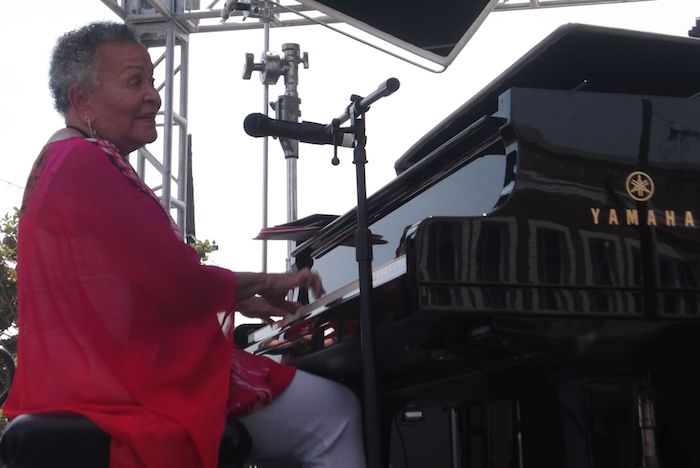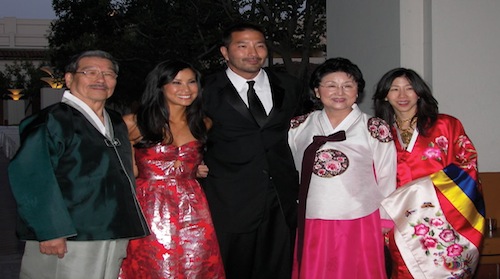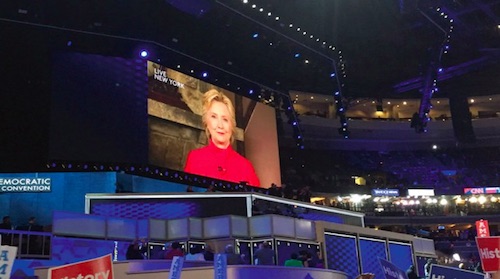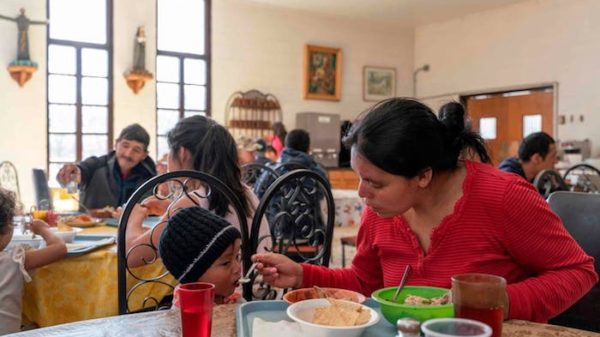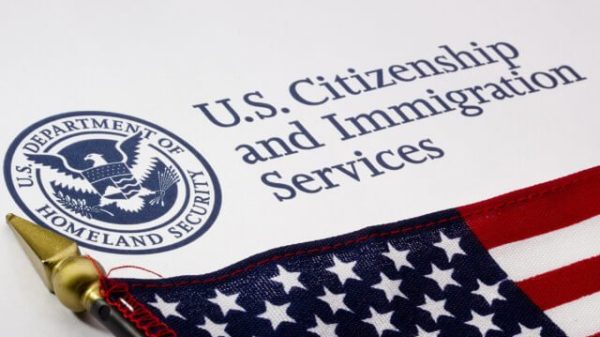Magazine, The Immigrant Experience
National political conventions in the United States are pivotal events where parties officially nominate their presidential and vice-presidential candidates, present their platforms, and energize their supporters. Traditionally, these conventions follow a predictable pattern, largely shaped by the outcomes of the primaries and the delegate selections that precede them. However, the conventions for the 2024 elections are expected to break from this norm due to a series of unusual and unprecedented circumstances.
A recent panel of experts delved into these evolving dynamics. The panel included Sherry Bebitch Jeffe, Professor Emeritus of the Practice of Public Policy Communication at the Sol Price School of Public Policy at the University of Southern California, who has served as a political analyst for NBC4 Los Angeles and co-hosts the podcast “Inside Golden State Politics”; Bill Schneider, Professor Emeritus at the Schar School of Policy and Government at George Mason University and a former Senior Political Analyst for CNN; and Jonathan Diaz, Director of Voting Advocacy and Partnerships at the Campaign Legal Center.
Key Issues and Insights
1. Democratic Convention Dynamics
One of the central questions discussed was whether President Joe Biden would need to step down before the Democratic National Convention (DNC) for it to become an open convention. Jonathan Diaz provided clarity on this issue, explaining that if President Biden were to withdraw from the presidential race, the delegates selected for the convention would largely remain the same. These delegates are predominantly Biden supporters and would likely nominate Vice President Kamala Harris as his successor. This expectation stems from Harris’s role as Biden’s chosen running mate and the loyalty of the delegates to him.
The panel addressed queries about the 25th Amendment, which pertains to the removal of a sitting president from office due to incapacity. It was noted that this amendment does not apply to a candidate’s withdrawal from a race. Biden’s decision to step down as a candidate does not necessitate his resignation as president, distinguishing it from Lyndon Johnson’s decision in 1968, when he chose not to run for re-election but remained in office until his term ended.
Bill Schneider emphasized that Biden’s potential withdrawal from the presidential race would not imply an automatic resignation from the presidency, given that he would only be a few months away from completing his term.
2. Historical and Security Comparisons
The discussion also compared the current conventions to past ones, notably the tumultuous 1968 Chicago Convention. It was highlighted that modern conventions benefit from significantly enhanced security measures, which are a direct result of lessons learned from previous events. This heightened security aims to minimize the risk of major disturbances inside the convention hall.
3. Voter Behavior and Election Integrity
The panel explored potential impacts on voter behavior if a high-profile candidate like Biden were to step down. The conversation touched on voter intimidation and its potential effects on voter turnout. Historical examples and current protective measures were referenced to illustrate how strong rhetoric and political polarization could either boost voter engagement or deter participation due to fears of violence. The experts acknowledged the dual potential of such dynamics to either galvanize voters or suppress turnout.
Concerns About Election Disputes
The panel expressed significant concern over potential disputes surrounding the election results, particularly in light of Donald Trump’s actions and rhetoric. Trump is expected to challenge the legitimacy of the election if he loses, similar to his approach in 2020. His team is already preparing arguments alleging voter fraud, despite the lack of substantial evidence. Lawsuits have been filed in key swing states challenging voter registration rolls, alleging illegal registrations by non-citizens. This strategy is part of a broader effort to cast doubt on the electoral process and increase public skepticism about its integrity.
4. Legal and Legislative Reforms
In response to the January 6, 2021, insurrection, Congress enacted reforms to the Electoral Count Act. These changes aim to clarify the Vice President’s role in certifying electoral votes and raise the threshold for objections to the certification process. The panel discussed these reforms as a crucial step in preventing similar challenges in future elections.
5. Media Trust and Political Influence
The discussion also addressed the decline in public trust in media and institutions. There has been a noticeable shift in how people perceive local versus national media, with local sources often seen as more trustworthy. This erosion of trust is considered a significant factor in the current political climate. The panel noted that while distrust in media is not new, its current level is unprecedented in recent history. Historical comparisons were made to illustrate how politicians have historically used media to influence public opinion, a practice that continues today.
The Shifting Political Landscape
The conversation then shifted to the changing dynamics within American political parties. For instance, the working-class demographic, which once identified with a pro-union, blue-collar ethos, is increasingly aligning with the Republican Party. This shift is driven more by cultural issues than by economic policies. The “diploma divide” has become a significant factor in this realignment, with college-educated voters leaning Democratic while those without college degrees often support Republicans.
6. The Role of Unions and Political Strategy
The evolving role of unions in politics was also highlighted. Traditionally, the Republican Party was seen as less supportive of union interests, but recent developments show some union leaders speaking at Republican conventions. This shift reflects the party’s strategic efforts to appeal to working-class voters, even as it maintains policies that may not traditionally align with pro-union stances.
Electoral Concerns and Hopes
The discussion about the current electoral cycle brought forth concerns about potential disruptions and the integrity of the democratic process. The fear of contested elections and political violence is significant, with concerns that the current environment could lead to chaos similar to past election cycles. Despite these concerns, there is hope that a decisive electoral outcome could mitigate some of these risks.
The increasing public awareness and concern for the health of American democracy were seen as positive developments. This growing vigilance among the electorate is expected to play a crucial role in safeguarding the electoral process and maintaining democratic integrity.
The Rising Importance of Electoral Reforms and Democracy
Historically, electoral reforms and the preservation of democracy were not always top priorities for voters. Before transitioning into the field of election law, many individuals, including the speaker, did not place a high emphasis on these issues when selecting candidates. Historically, candidates rarely emphasized voting rights or electoral reforms, and discussions about democracy’s health were not as prominent.
However, this perspective has shifted markedly. Today, concerns about democracy and election integrity are among the top priorities for many voters. This change reflects a broader recognition of the importance of actively maintaining and advancing democratic principles. The speaker’s experience underscores a growing awareness that democracy functions effectively only when all participants contribute to its preservation and advancement. This heightened awareness among voters suggests a stronger collective commitment to defending democratic values and ensuring that necessary reforms are addressed.
#2024Elections #PoliticalConventions #ElectionImpact #USPolitics #Democracy2024 #ElectionTrends #PoliticalInsights #ConventionAnalysis #VoterBehavior #ElectionIntegrity



